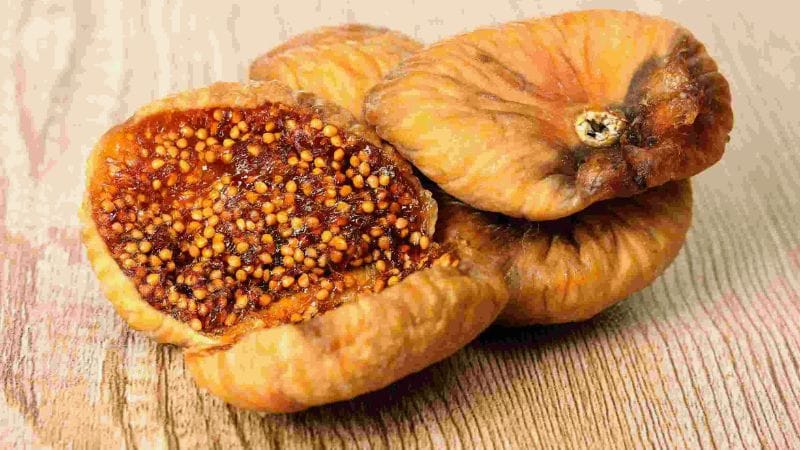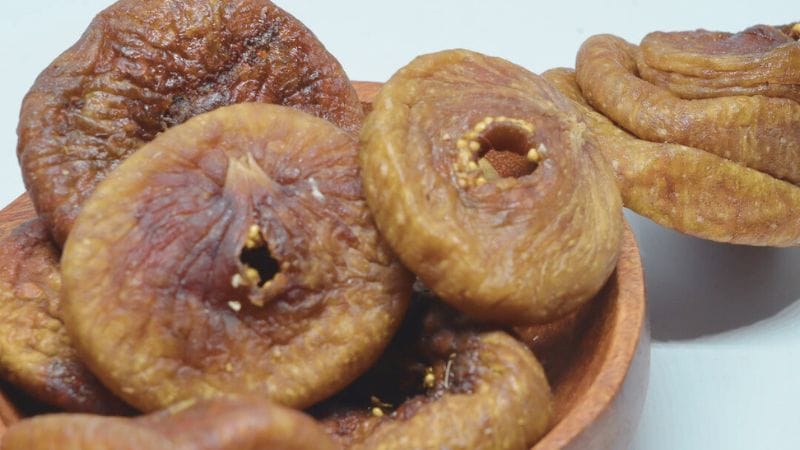Are Figs Vegetarian? The Science and Ethics Behind the Debate
The debate over whether figs (commonly known as anjeer in India) are vegetarian or non-vegetarian has been a topic of interest among vegetarians, vegans, and curious consumers alike. Figs have long been cherished for their nutrient-rich profile, but the way they grow and the unique process involved in their pollination has raised ethical questions.
The core of this debate lies in fig pollination, which involves a mutual relationship with a type of tiny wasp. Here, we’ll delve into the biological processes that take place within figs, the wasp’s role, and whether this affects their classification as vegetarian or non-vegetarian.
What Are Figs (Anjeer)?
Figs are distinctive fruits recognized for their sweetness, chewy consistency, and numerous health advantages. The common fig, Ficus carica, is a member of the mulberry family and has been cultivated since ancient times, providing essential vitamins, minerals, fiber, and antioxidants. Figs are highly prized not only for their rich flavor but also for their medicinal properties, which can aid digestion, promote heart health, and help regulate blood sugar levels.
Anjeer is a staple in Indian households, often enjoyed dried or fresh, and is especially popular during festive seasons. However, despite their popularity, the natural process of fig pollination has raised questions about their classification as a vegetarian or non-vegetarian food item.
The Pollination Process: The Fig and Wasp Relationship
The reason figs are sometimes viewed as non-vegetarian lies in their unique pollination process, which involves a tiny insect called the fig wasp. Figs are considered “false fruits” or “inverted flowers,” meaning the edible part of the fig is actually a cluster of flowers turned inside out. For these flowers to be pollinated, they require the assistance of the fig wasp in a specialized relationship called mutualism, where both the fig and the wasp benefit from the interaction.
- The Role of the Wasp: In order to pollinate and develop, figs rely on fig wasps, specifically from the Agaonidae family. A female fig wasp enters a fig through a small opening at the bottom, known as the ostiole, carrying pollen from another fig. The wasp deposits the pollen, allowing the fig to develop seeds. This process also enables the wasp to lay her eggs inside certain parts of the fig, where they will eventually hatch.
- Life Cycle of the Wasp: After laying her eggs, the female wasp dies inside the fig. When the wasp’s eggs hatch, the offspring continue the cycle. The male offspring mate with the female offspring, then dig tunnels out of the fig, allowing the females to escape, carrying pollen from that fig to a new one, thereby continuing the process.
- Enzymatic Breakdown: Here’s the crucial aspect that sparks the vegetarian vs. non-vegetarian debate. When the female wasp dies inside the fig, the fruit produces enzymes that break down the insect’s body, essentially absorbing it. By the time the fig ripens, any remnants of the wasp are almost completely dissolved, making it unnoticeable in the final fruit.
Also Read: Breaking The Viral Dubai Chocolate Bar Taking Over TikTok
Are Figs Non-Vegetarian?
The question of whether figs are vegetarian hinges on how strictly one defines vegetarianism. Technically, figs contain remnants of an animal, as they rely on wasps for their pollination. However, because the wasp is naturally decomposed and absorbed by the fruit, the insect is not present in any identifiable form by the time the fig is ready to eat.
- Vegetarian Perspective: From a scientific standpoint, figs can be considered vegetarian because they do not contain any distinct animal flesh, and the pollination process is naturally occurring. No intentional harm is inflicted on animals, and the wasp’s presence in the fig is a part of its life cycle.
- Ethical Considerations for Vegans: For strict vegans, who often avoid food items that involve any form of animal participation, figs may be seen as non-vegan. Vegans who follow this philosophy might choose to avoid figs due to the indirect involvement of the wasp in the fruit’s growth. However, it is worth noting that not all fig varieties are pollinated by wasps; certain types, like some cultivated varieties, can be grown without insect pollination, which some vegans find acceptable.
Varieties of Figs and Pollination: Wasp-Free Options
Not all figs require wasp pollination. Certain varieties, especially those cultivated for commercial use, are self-pollinating and do not rely on fig wasps at all. These varieties include:
- Common figs: Many commercially available figs, especially those found in supermarkets, do not require wasp pollination. Common fig varieties, such as Black Mission and Kadota, are often self-pollinating, and the wasp is not involved in their growth process.
- Parthenocarpic Figs: Some fig varieties are parthenocarpic, meaning they can produce fruit without fertilization or pollination. These varieties are more likely to align with vegan and vegetarian dietary requirements because they do not involve any wasps in their production.

Health Benefits of Figs Nutritional Value
Regardless of the pollination debate, figs are nutrient-dense fruits with numerous health benefits. Here are some key health benefits that make figs a valuable addition to a balanced diet:
- Rich in Fiber: Figs are high in dietary fiber, which supports digestive health, helps regulate blood sugar levels, and can promote satiety, aiding in weight management.
- Antioxidant Powerhouse: Figs are packed with antioxidants, especially phenolic compounds, which can help combat oxidative stress and reduce the risk of chronic diseases.
- Heart Health: The potassium and magnesium content in figs makes them beneficial for heart health, helping to control blood pressure and reduce the risk of heart disease.
- Bone Health: Figs are a good source of calcium, contributing to stronger bones and potentially reducing the risk of osteoporosis.
- Improved Skin Health: The high levels of vitamins and minerals in figs may improve skin health, providing a natural glow and reducing the effects of aging.
The Vegetarian or Non-Vegetarian Status of Figs
The classification of figs as vegetarian or non-vegetarian ultimately depends on personal interpretation of dietary guidelines. For most vegetarians, figs are acceptable because the pollination process is natural, and the wasp is neither deliberately harmed nor present in any recognizable form. However, for vegans who avoid animal products altogether, the indirect involvement of wasps in fig production may lead to a different conclusion.
For those who wish to avoid wasp-pollinated figs, self-pollinated or parthenocarpic varieties are readily available and offer an alternative without involving any animal life in the pollination process. Understanding the biology and pollination process behind figs can help consumers make an informed choice based on their dietary preferences and ethical beliefs.
In essence, while the fig-wasp mutualism raises questions for some, figs remain a nutrient-rich fruit that aligns with vegetarian principles for most people. With the availability of wasp-free fig varieties, individuals can make choices that reflect their personal dietary values, continuing to enjoy the unique taste and health benefits of anjeer in their daily diets.

